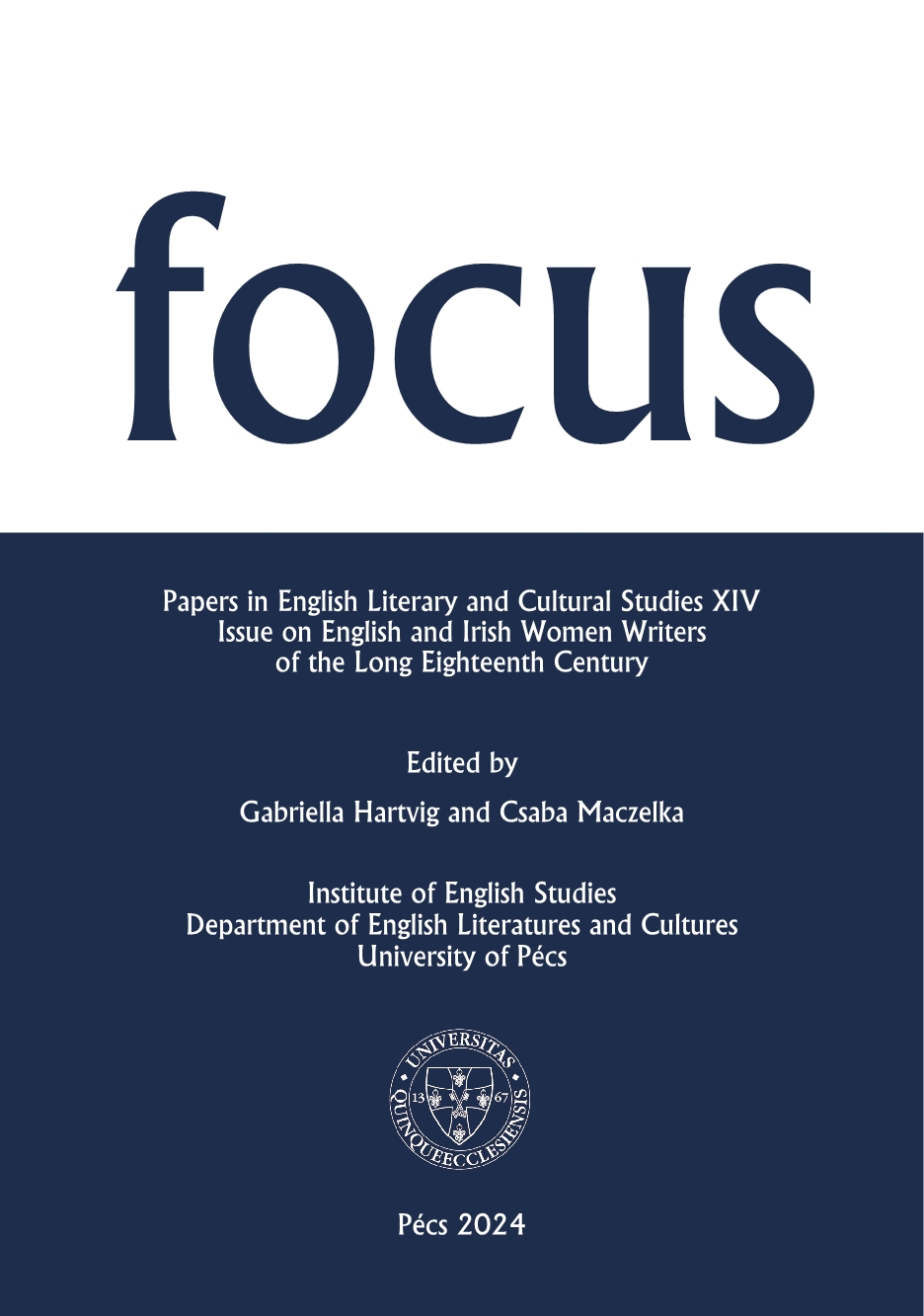The Sister of Telemachus: The Main Character of Margaret Cavendish’s “Assaulted and Pursued Chastity” as the Embodiment of Progress and Conventions
DOI:
https://doi.org/10.15170/Focus.14.2024.8Keywords:
Margaret Cavendish, female protagonist, travel, power, gender roles, subversionAbstract
Margaret Cavendish’s (1623–1673) “Assaulted and Pursued Chastity” (1656) is one of the English writer’s early prose works. However, the text already displays a kind of formal experimentation and playfulness, as well as many of the extraordinary and subversive ideas the Duchess’ mature literary voice of the 1660s is characterized by. Accordingly, it deals with topics such as travelling, marriage, military conflicts, colonization, as well as the concept of virtue and the risks of virtuous behaviour. The protagonist of the story is often analyzed as an early manifestation or prototype of the active, resourceful, travelling female individual: Travellia’s wit, determination, oratory and argumentation skills indeed seem to predict the lasting success of Cavendish’s later heroines, and even the full potential of their writer’s creative powers. In my paper, I intend to take a look at how the main character’s progressive and, to a certain extent, even masculine traits and deeds are juxtaposed with her ultimate decision to adhere to the cultural conventions of femininity by getting married, focusing mainly on the various ways in which this kind of shift and the ensuing double perspective of the heroine might influence the reading and overall evaluation of “Assaulted and Pursued Chastity.”
Downloads
Published
How to Cite
Issue
Section
License
Copyright (c) 2024 Bence Gábor Kvéder

This work is licensed under a Creative Commons Attribution-NonCommercial-NoDerivatives 4.0 International License.
FOCUS: Papers in English Literary and Cultural Studies follows the principles laid down by Creative Commons, which provides guarantees for the Author’s copyright while also ensuring that intellectual properties are made available for the wider public in a digital form. All papers submitted to the journal apply the following licence conditions (indicated on the journal’s website as well as in individual publications):
“© This work is licensed under a Creative Commons Attribution-NonCommercial-NoDerivatives 4.0 International License.”
You are free to:
- Share, copy and redistribute the material included in the journal in any medium or format under the following terms:
- Attribution — You must give appropriate credit to the Author, and indicate the original place of publication [FOCUS: Papers in English Literary and Cultural Studies, Issue nr., page numbers.].
- NonCommercial — You may not use the material for commercial purposes.
- NoDerivatives — You are not allowed to remix, transform, or build upon the material.
- The above conditions must always be indicated if the journal material is distributed in any form.
- The above conditions must always be met, unless a written permission signed by the Author and the Editor-in-Chief states otherwise.

